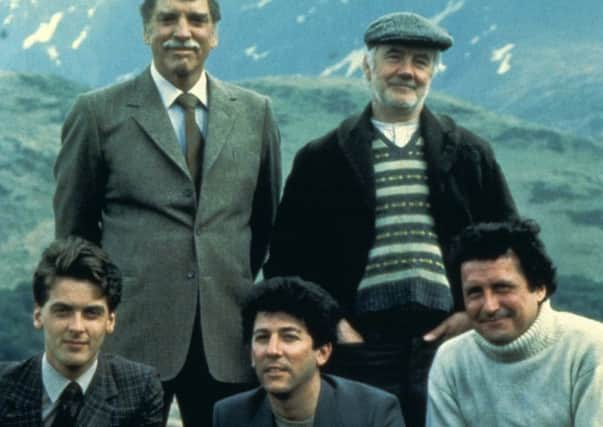Stage version of Local Hero gets '˜love triangle' twist


Speaking for the first time about the adaptation, writer and director Bill Forsyth has revealed the story will expand on an element of romantic intrigue in his original film.
Released in 1983, it followed the events which unfold when an American tycoon sends an executive, Mac, to a remote West Highland village to try to close a deal on a site for a new refinery.
Advertisement
Hide AdPlayed by Peter Riegert in the film, Mac is gradually won over by the landscape and the locals, and appears increasingly drawn to Stella, who runs the local hotel with husband Gordon.
But Mac reluctantly leaves the village behind at the end of the film when his boss Happer (Burt Lancaster) arrives and decides to pull the plug on the refinery plan after meeting beach hermit Ben.
Forsyth is joining forces with Dire Straits legend Mark Knopfler, who created the original iconic soundtrack, and David Greig, artistic director of the Royal Lyeum Theatre in Edinburgh, to create the musical, which will premiere there in January.
Speaking at the Edinburgh International Film Festival, Forsyth has revealed he still felt the much-loved ending of the film was “a cop out”.
He revealed to the audience at the Filmhouse that Mac is the mystery caller to the village’s red phone box in the film’s famous final scene, which was added at the last minute after studio executives were unhappy about the film ending with Mac returning to his apartment in Houston and gazing out at the night sky.
Discussing the processing of adapting his film script into a musical, Forsyth said: “It’s not been so much a practical thing about working out what stay and goes, it’s been that ultimate question: ‘what is this thing about?’ “It confounds me how much the film seems to work and when people respond to it and say it does this and that.
Advertisement
Hide Ad“For me, it is quite an elusive thing because the main character obviously changes, but there aren’t many dramatic situations that you see changing him.
“Through the movie, Mark Knopfler created the place as a character. There are so many examples of the place impressing itself on Mac - I hadn’t realised that until very recently.
Advertisement
Hide Ad“One of the instincts we had was to throw it onto the characters more, since they were going to be singing the story.
“The basis of it is is that there is a human triangle. The film doesn’t lay it out that much. It’s there but it is only in hints and atmospheres.
“The characters in the film go through their changes without really sharing anything. There is no real dialogue between them. I wouldn’t think about tampering with the end of the film. But it has cropped up a lot in the thinking about the musical. The ending of the film wasn’t in the original cut. The film that I wrote ended in Mac’s apartment. The studio sat me down and said they liked the film, but they thought it had a way to go and would like me to reshoot the ending. Their idea was to make it a tidier ending, with Mac getting back out of the helicopter after everyone says goodbye. I was given overnight to think about it. We got away with it the way we did it. But I’m still unsure as to whether it was a cop-out or not.”
Forsyth admitted he regarded the theatre world as “dangerous” and said he had always had an “edgy relationship” with being in an audience. He added: “I think there is a real element of danger in theatre and it is challenging. That is how it operates. Maybe I’m just highly sensitive but I do still think that - there is something dangerous about theatre.
“If anyone asked me up until fairly recently, and even probably now, I would say that theatre is a language that I don’t understand - it’s a practical, philosophical and emotional language that I don’t understand. I think that’s the way it probably remains. The major difference is that on a film set you have got control. You can stop and start and say ‘let’s do it again’ or ‘let’s come back tomorrow’ if things get really tough.
“There is an awful lot more precision and discipline, certainly from my point of view as a filmmaker. My one main ritual which I never ceased to reslish was at the end day’s shooting when I would take a pen through the pages that we had shot. With theatre it is endlessly provisional. Even the first week of a week run are called previews. I’m sure every night the director is up at the back and grabbing the actors on the way out. That is part of the perversion of it.”